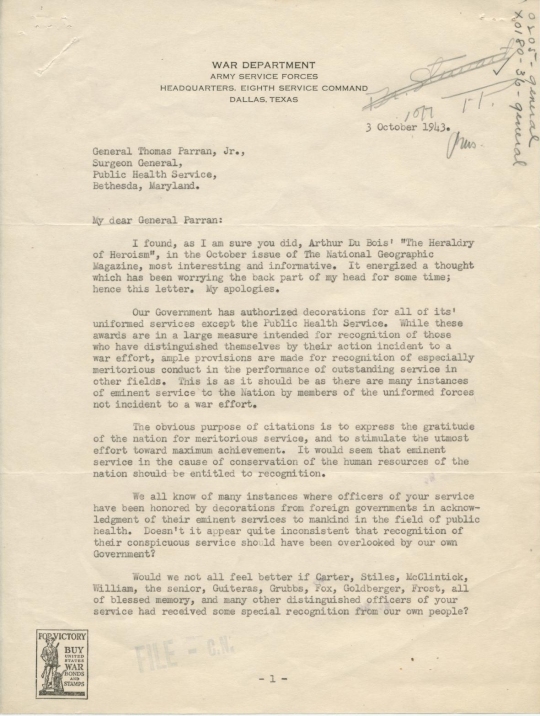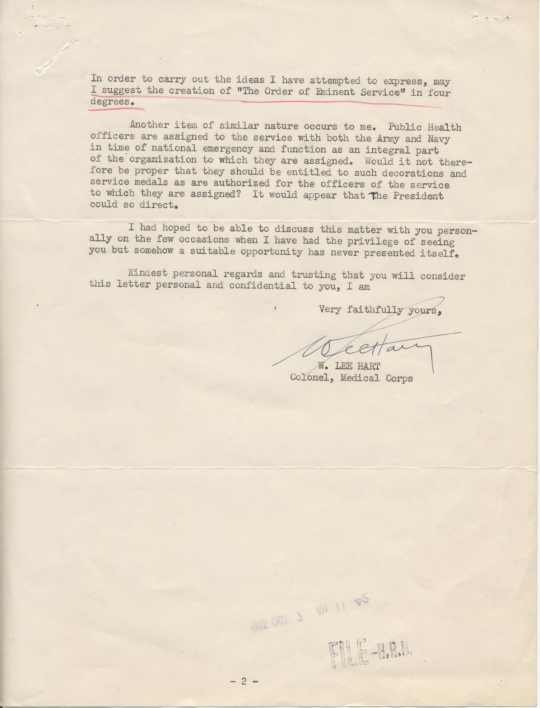
A Moment in Time . . .
Military Decorations and the Genesis of the Awards Program
Submitted by LT Russell J. Graham, USPHS
It was not until World War II that outcry about recognition of the achievements of Corps officers came from the U.S. Army of all places. In 1943, the Army petitioned a rather stunned Surgeon General Thomas Parran, Jr., who believed up to that point that Corps officers did not deserve military decorations, nor was he completely convinced that the Corps should be militarized. Colonel W. Lee Hart of the Army Medical Corps argued that “Public Health officers are assigned to the service with both the Army and Navy in time of national emergency, and function as an integral part of the organization to which they are assigned. Would it not therefore be proper that they should be entitled to such decorations and service medals as are authorized for the officers of the service to which they are assigned?” Colonel Hart was indeed successful in his argument for including Corps officers, as Surgeon General Parran was successful in securing wording in legislation and an Executive Order to allow Corps officers to receive military decorations. This action by Surgeon General Parran later paved the way to allow Corps officers assigned to the Department of Defense to receive military decorations and it ultimately lead to the establishment of the Public Health Service awards program, which was established in the 1960s.

